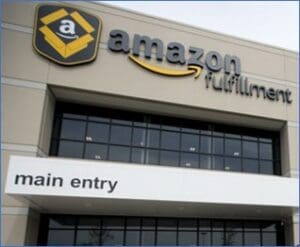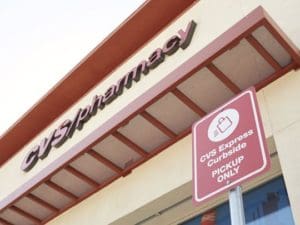 If this was a normal year, I would be writing that today is the last day of school for my kids (and my song of the week would clearly be School’s Out by Alice Cooper). However, this is not a normal year. In fact, I would refer to these days as strange days. Massachusetts schools shuttered for two weeks in mid-March, which was then extended for another month, before finally being closed for the remainder of the year. So, in reality, my kids have been out of school for 15 weeks. And for the most part, they have loved it. We have done our best to continue with the remote curriculum, but unlike in school, when they have finished their work, they have been able to grab their bikes and head out for hours of biking and playing. The transition to summer this year will likely be a little bit anticlimactic, but I’m sure they will relish the lack of assignments and Zoom meetings. And now on to this week’s logistics news.
If this was a normal year, I would be writing that today is the last day of school for my kids (and my song of the week would clearly be School’s Out by Alice Cooper). However, this is not a normal year. In fact, I would refer to these days as strange days. Massachusetts schools shuttered for two weeks in mid-March, which was then extended for another month, before finally being closed for the remainder of the year. So, in reality, my kids have been out of school for 15 weeks. And for the most part, they have loved it. We have done our best to continue with the remote curriculum, but unlike in school, when they have finished their work, they have been able to grab their bikes and head out for hours of biking and playing. The transition to summer this year will likely be a little bit anticlimactic, but I’m sure they will relish the lack of assignments and Zoom meetings. And now on to this week’s logistics news.
- Amazon in the news:
- Kinaxis to acquire Rubikloud
- Pandemic leads to a bicycle boom, and shortage, around world
- After spiking, meat prices ease off
- Same-day delivery news
- US to unveil voluntary self-driving testing data-sharing effort
 Amazon is now advertising itself as a shipping carrier in the UK. On its UK website, the company is letting shippers know that Amazon Shipping will “pick up your parcels 7 days a week and deliver them to your customers.” This appears to be the same service that Amazon was testing in the US earlier this year but suspended due a surge in its own customers orders. The service does not only apply to Amazon orders, stating that sellers can ship orders from their own website or other channels to their customers. In making an entry into the market, it appears that Amazon is doing its best to gain some market share, especially with the promise of not charging extra fees for residential delivery, peak times, or weekend delivery. This could certainly make other carriers rethink some of their strategies.
Amazon is now advertising itself as a shipping carrier in the UK. On its UK website, the company is letting shippers know that Amazon Shipping will “pick up your parcels 7 days a week and deliver them to your customers.” This appears to be the same service that Amazon was testing in the US earlier this year but suspended due a surge in its own customers orders. The service does not only apply to Amazon orders, stating that sellers can ship orders from their own website or other channels to their customers. In making an entry into the market, it appears that Amazon is doing its best to gain some market share, especially with the promise of not charging extra fees for residential delivery, peak times, or weekend delivery. This could certainly make other carriers rethink some of their strategies.
COVID-19 has certainly changed the way we do everything, and new regulations and guidelines will continue to impact businesses around the world. One of the most important aspects, and sometimes most difficult, is to adhere to proper social distancing guidelines. This is especially difficult in the warehouse environment. Well, Amazon has rolled out new technology to help its warehouse workers remain socially distanced while performing their jobs. The new software, called Distance Assistant, displays camera footage on a television monitor, and notes which employees are following social distancing guidelines. Those keeping a safe distance are marked in green, while those who are not are marked in red. This gives workers immediate visual feedback and they can take steps (literally) to move to a safe distance from other workers. The company intends to make its new software freely available to other businesses
![]() Kinaxis, a supply chain management software company focused on sales and operations planning, capacity planning, demand planning, inventory planning, and supply planning, has agreed to acquire Rubikloud, a provider of AI solutions that automate supply chain prescriptive analytics and decision-making in the retail and CPG industries. For Kinaxis, this acquisition enhances its AI-based demand forecasting, promotion, pricing, and assortment optimization while extending its capabilities for the CPG industry. The deal, which should close in the next 60 days, is for $60 million in cash.
Kinaxis, a supply chain management software company focused on sales and operations planning, capacity planning, demand planning, inventory planning, and supply planning, has agreed to acquire Rubikloud, a provider of AI solutions that automate supply chain prescriptive analytics and decision-making in the retail and CPG industries. For Kinaxis, this acquisition enhances its AI-based demand forecasting, promotion, pricing, and assortment optimization while extending its capabilities for the CPG industry. The deal, which should close in the next 60 days, is for $60 million in cash.
 During the coronavirus pandemic gyms have closed, fears have risen regarding public transportation, and kids have been home from school looking for something to do. As a result, there is now a global shortage of bicycles. In fact, during the last two months, bicycle sales in the US have surged to levels unseen since the oil crisis in the late 1970s. Big box retailers and small independent bike shops alike have seen their stocks dwindle, especially in regard to kids bikes and more affordable models. Cities around the world are making changes to infrastructure such as installing bike lanes to accommodate the surge in ridership. Now, with store shelves empty, bike orders are taking weeks or sometimes even months to be fulfilled. Bicycle repair shops are also seeing backlogs of two to three weeks for routine maintenance. This certainly makes me happy we got our kids bikes as early birthday presents in early March.
During the coronavirus pandemic gyms have closed, fears have risen regarding public transportation, and kids have been home from school looking for something to do. As a result, there is now a global shortage of bicycles. In fact, during the last two months, bicycle sales in the US have surged to levels unseen since the oil crisis in the late 1970s. Big box retailers and small independent bike shops alike have seen their stocks dwindle, especially in regard to kids bikes and more affordable models. Cities around the world are making changes to infrastructure such as installing bike lanes to accommodate the surge in ridership. Now, with store shelves empty, bike orders are taking weeks or sometimes even months to be fulfilled. Bicycle repair shops are also seeing backlogs of two to three weeks for routine maintenance. This certainly makes me happy we got our kids bikes as early birthday presents in early March.
 CVS has been in the news quite a bit lately for its pilots of autonomous vehicles and drones to make home deliveries. Now the company is partnering with DoorDash for same-day delivery of food, grocery, nonfood, and non-prescription products. CVS announced earlier this week that more than 3,000 items will be available for purchase via DoorDash’s website or mobile app. CVS already offers same-day delivery of nonprescription items via Instacart and Shipt. In support of the partnership, DoorDash is offering 20% off (up to $5) CVS items through the app on a customer’s first order of $15 or more.
CVS has been in the news quite a bit lately for its pilots of autonomous vehicles and drones to make home deliveries. Now the company is partnering with DoorDash for same-day delivery of food, grocery, nonfood, and non-prescription products. CVS announced earlier this week that more than 3,000 items will be available for purchase via DoorDash’s website or mobile app. CVS already offers same-day delivery of nonprescription items via Instacart and Shipt. In support of the partnership, DoorDash is offering 20% off (up to $5) CVS items through the app on a customer’s first order of $15 or more.
 Staples is also jumping on the crowd-sourced same-day home delivery bandwagon. The company announced that it is partnering with Instacart to roll out same-day delivery from over 1,000 US stores. According to an announcement from Staples, the partnership lets customers choose between an array of products such as back-to-school products and home office items as well as personal protective equipment (PPE) and cleaning supplies. Staples customers can shop through the Instacart website or mobile app and will be able to enter their Staples Rewards number to ensure loyalty points are accrued.
Staples is also jumping on the crowd-sourced same-day home delivery bandwagon. The company announced that it is partnering with Instacart to roll out same-day delivery from over 1,000 US stores. According to an announcement from Staples, the partnership lets customers choose between an array of products such as back-to-school products and home office items as well as personal protective equipment (PPE) and cleaning supplies. Staples customers can shop through the Instacart website or mobile app and will be able to enter their Staples Rewards number to ensure loyalty points are accrued.
 Mercari, the Japan-based peer-to-peer selling platform, is partnering with Postmates to pilot a pick-up and delivery program. Mercari’s biggest market is Japan but the company is looking to expand its US presence. Postmates has had a two-hour courier service in development for the last several months, which allows sellers to accept local orders without dropping off packages at a post office. The Postmates-fulfilled orders must weigh less than 50 pounds, and after an introductory rate of $4.99, the program will cost $10.99 per delivery. Mercari is the first re-seller to use the program.
Mercari, the Japan-based peer-to-peer selling platform, is partnering with Postmates to pilot a pick-up and delivery program. Mercari’s biggest market is Japan but the company is looking to expand its US presence. Postmates has had a two-hour courier service in development for the last several months, which allows sellers to accept local orders without dropping off packages at a post office. The Postmates-fulfilled orders must weigh less than 50 pounds, and after an introductory rate of $4.99, the program will cost $10.99 per delivery. Mercari is the first re-seller to use the program.
 In the final piece of same-day delivery news, Seattle is debating premium pay for grocery delivery workers. There have been many hazard pay programs developed during the COVID-19 outbreak, and as food retail and grocery delivery drivers have become front line workers, the city is seeking additional payments for them. A bill before Seattle’s City Council would require those delivery services to pay $5 per delivery or trip, a program that could last as long as March 3, 2023. According to the bill, “gig workers working for food delivery network companies and transportation network companies bear the brunt of the time and expenses necessary for cleaning and disinfecting equipment and engaging in other efforts to protect themselves, customers, and the public from illness.” Companies such as Instacart, Uber, and Lyft, not surprisingly, have expressed opposition.
In the final piece of same-day delivery news, Seattle is debating premium pay for grocery delivery workers. There have been many hazard pay programs developed during the COVID-19 outbreak, and as food retail and grocery delivery drivers have become front line workers, the city is seeking additional payments for them. A bill before Seattle’s City Council would require those delivery services to pay $5 per delivery or trip, a program that could last as long as March 3, 2023. According to the bill, “gig workers working for food delivery network companies and transportation network companies bear the brunt of the time and expenses necessary for cleaning and disinfecting equipment and engaging in other efforts to protect themselves, customers, and the public from illness.” Companies such as Instacart, Uber, and Lyft, not surprisingly, have expressed opposition.
In recent months there has been a lot of concern over the unstable meat supply in the US. As demand was rising, many meat processing plants were closing due to coronavirus outbreaks. This resulted in soaring prices for meat. However, according to the US Department of Agriculture, the increase in beef prices peaked, for now at least, in mid-to-late May. As businesses have re-opened, prices have dropped to near pre-quarantine levels. For example, choice cutout prices, representing the composite price of all choice beef cuts produced by a finished animal, soared to over $450, more than double the price of about $210 in the first two months of the year. It has since dropped to about $240, as of June 12. While the market remains uncertain, and further outbreaks are a distinct possibility, the leveling off of prices has helped to bring back a sense of normalcy.
US auto safety regulators will unveil a voluntary effort to collect and make available nationwide data on existing autonomous vehicle testing next week. Each state has its own set of guidelines and regulations regarding autonomous vehicles and data disclosure. As a result, there is not a centrally located repository of all autonomous vehicle testing. The National Highway Traffic Safety Administration is unveiling the Automated Vehicle Transparency and Engagement for Safe Testing, or AV TEST, Initiative, to provide “an online, public-facing platform for sharing automated driving system on-road testing activities.” This will allow one central resource for all types of autonomous vehicles and tests, including personal use, last mile deliveries, and long-haul trucking.
Want to learn more about driving success with your transportation management strategy? Join Blue Yonder, ARC Advisory Group, and E&Y as they discuss the future of transportation in an informative dialogue and what organizations can do to prepare for the next normal. Register HERE.
That’s all for this week. Enjoy the weekend and the song of the week, Strange Days by the Doors.


















